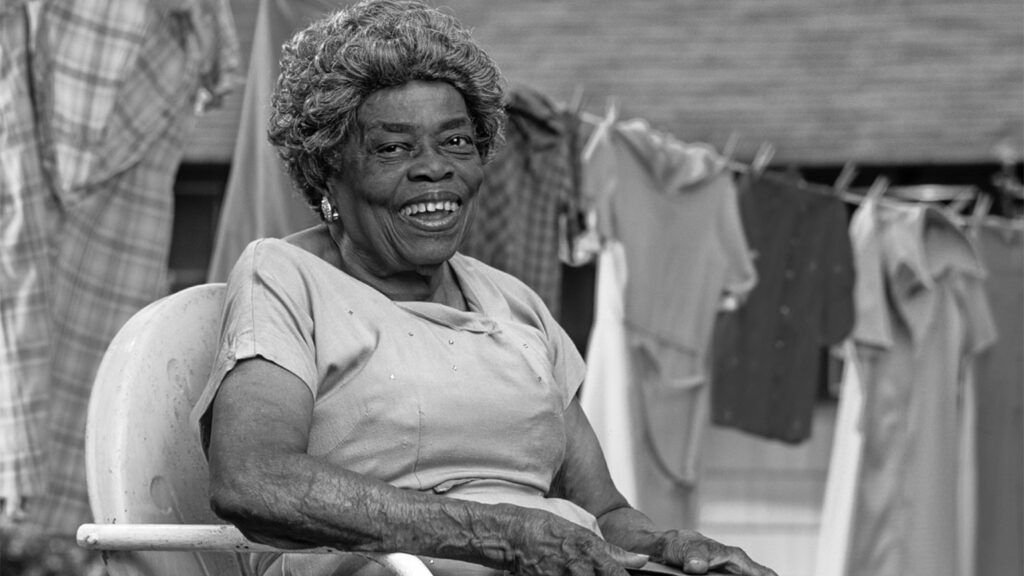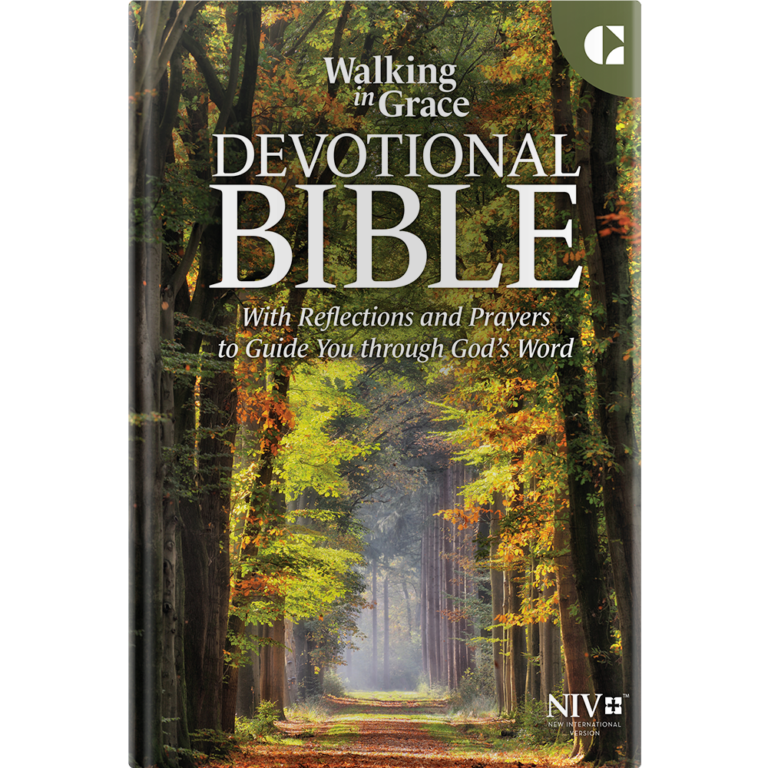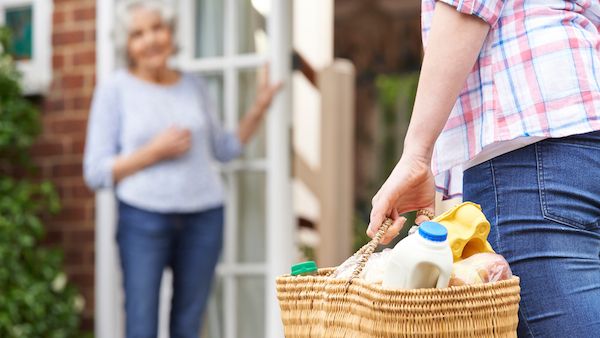This story originally appeared in the September 1996 issue of Guideposts.
I was born on a farm in Wayne County, Mississippi, 88 years ago. I lived there with my mama, grandmother, and aunt. We raised corn, peas, potatoes, watermelons and cane. And we used to wash our clothes outside in a big black cast-iron pot.
When the four of us moved to Hattiesburg in 1916, we brought that pot with us. Like a treasure pot, it helped us make a living. In it my grandmother and mother did washing for white folks. They carried the water from a hydrant and filled up three big pots they had on a bench in the backyard of our little frame house.
Mama boiled the clothes—she wouldn’t scrub them—then rinsed and hung them on the line with wooden clothespins.
I can remember being just a small child trying to throw some of the washing in the pot. I thought I was helping, but really I was just tossing clothes around and messing everything up.
My great-grandmother, who was there at the time, called over to Mama: “Lucy, let that child wash the smaller pieces, the socks and things!” And so Mama let me stand on a wooden box and put a few pieces into the water. That was how I began.
I loved to wash and iron. When I started going to Eureka Elementary School, I washed my own clothes on Saturday mornings, standing on my box so I could toss them into the pot. Then I took my box out to the clothesline so I could reach up and hang the wash in the morning sun.
In the evening, I heated up that heavy old iron on the cookstove and did my ironing while standing on the box. And so I had all my clothes ready for the next week.
I loved school and every one of my teachers, especially Miss Hill. I must have been about 10 or 11 when one day she said, “Oseola, come up to the desk.” So I went up and she talked to me low so nobody else could hear: “Oseola, who irons your clothes?”
“I do.”
“You do? Oh, my. Well, I’ve got a linen dress I’d like you to iron. What do you charge?”
I said, “Ten cents.” But when I returned the dress, freshly washed and ironed, she paid me a quarter. As time went on one person told another about my washing and ironing, and the work just seemed to come. The more I did, the more money I made.
Some children in the household where my grandmother worked had discarded a doll and buggy, so Grandma brought them home for me. I started putting my dimes and nickels and quarters under the pink lining of the doll buggy.
When I was 12 my aunt took sick, so I dropped out of the sixth grade to look after her. I was sad to miss out on learning, but felt good about helping my aunt. The next year my classmates had moved on, and I felt so far behind I never went back to school. Instead, I kept washing and ironing and tucking money under the pink lining of that buggy.
READ MORE: A JEWISH VIEW ON GIVING
I was the one who went round to the grocer and the milkman to pay our bills each month. One day I passed the bank and it seemed to be the thing to do to keep my money there. I took in all my coins and dumped them on the counter—I can’t tell you how much I had, maybe five dollars.
The teller put my money away in a checking account, and every month, when I paid the bills, I dropped off more coins at the bank. All, that is, except for what I put in the collection plate at the Friendship Baptist Church. Nobody instructed me to do that. It just seemed fitting to give God back something of what he had given me.
The years passed. When I was in my 20s the Depression came, and I kept on taking in washing. I still used the old cast-iron pot, but now I didn’t need to stand on a box. On my days off, if anybody needed help for a party or something, I made some extra money.
I loved to work. I always asked the Lord to give me a portion of health and a portion of strength and some work to do. And over the years he did just that.
I hear some people today have financial advisors to tell them how to save their money and what to spend it on. Or people want more of this or more of that to make them happy, they just can’t get enough. Well, the Lord portioned out the good things in life to me just fine. Who needs any more?
I made a rule that I would always keep up my church giving, and once a year I made a payment on my insurance and on my burial plot. And every month I paid my water and electricity and gas bills, and set aside a certain amount for groceries and everyday needs.
Over the years God showed me how to spend a certain portion on this, how to spend a certain portion on that, and how to save the rest. It must have been him because nobody else showed me.
One day, when I went to the bank to deposit my money, the teller said, “Oseola, if you put your money in a savings account, you’ll get some interest on that money.”
“Yes, ma’am. When can I do it?” I asked.
“You can do it now.” And I did.
Then on another visit one of the people at the bank said to me, “Oseola, you ought to put your money in CDs and build up more money.”
And I said, “Yes, ma’am. When can I do that?”
And she said, “Right now.” So I did, and I just kept on adding. Sometimes twenty dollars a month, sometimes fifteen dollars. I only went to the bank to put my change and dollar bills in, not to get them out. As long as I was able to keep working, I didn’t see any need to take out that money and buy things I didn’t have to have.
Once a man down on Third Street was making a cedar chifforobe, and I paid him forty dollars for it. But that was the first and last check I wrote.
READ MORE: DEALING WITH A GODSEND
I also got my license as a hairdresser, and for about 14 years I washed and fixed people’s hair. But when Mama got sick with cancer, I went back to washing and ironing at home so I could take care of her.
Things were changing after the war. I had been charging two dollars and fifty cents for a bundle of laundry, but as time passed people gave me ten dollars a bundle. Some folks were switching to hand-cranked washing machines, but I kept using my cast-iron pot and the line out back.
I never needed much. If somebody gave me a pair of shoes that didn’t fit, I just cut out the toes. And my Bible got so tattered from use, I had to tape it up to keep the pages in. Never needed a car; I always walked wherever I went. Pushed a shopping cart back and forth to the grocery store about a mile down the road. I’ve got an old black-and-white TV; it gets one channel. But I never watch it. I’d rather read my Bible.
In ’64, Mama died; in ’67, my aunt passed on. So I’ve been by myself ever since. I was alone, except for the Lord.
I kept on working, even after the age most people retire. It was December of ’94 when my hand started swelling. I was doing washing for Lawyer McKenzie and his wife, and Mrs. McKenzie asked, “What’s the matter with your hand?”
“Creeping arthritis,” I said. “I’ve had a touch of it before, but it’s got me now.” It was mighty distressing that I had to quit work at the age of 86. But I said, “Lord, I want you to stay by me and guide me and protect me in all things.” And he sure did.
At the bank one day they asked me where I wanted my money to go when I passed on. Mr. Paul Laughlin—he’s one of the officers there—sat down with me and spread out ten dimes, and he told me that each dime represented ten percent of my money. So I took a dime for the church and a dime for each cousin. That left six dimes for a dream I had always had.
“I want to help some child go to college,” I said. “I’m going to give the rest of my money to the University of Southern Mississippi, so deserving children can get a good education. I want to help African-American children who are eager for learning like I was, but whose families can’t afford to send them to school.”
READ MORE: SCHOOL SUPPLIES AND MORE!
Mr. Paul looked at me funny and said, “Miss Oseola, that means you’ll be giving the school a hundred and fifty thousand dollars.”
One hundred and fifty thousand dollars! I had never realized how much I had, and the amount ’bout took my breath away! Lawyer McKenzie talked to me to make sure I still really wanted to follow through with my plan. Then we drew up the papers. He made sure I would still have enough money if I ever needed it, and the rest would be given out over the years ahead, year by year.
When the news of what I had done got out, folks from newspapers and magazines came round to find out who I was. I didn’t see what all the fuss was about, but invitations started arriving—to come visit the President in Washington, D.C., and the United Nations in New York City.
I had never been outside of Mississippi, except to Niagara Falls one time long ago and the roar scared me so! But I went and got a Presidential Citizens Medal and was honored by the UN. Who would have thought I would be making trips like that?
But of all the new people I met, the one who meant most to me showed up right in my own front yard. Last August a lovely young girl ran up and threw her arms around me. “Thank you, Miss McCarty,” she said, “for helping me go to college.”
It was Stephanie Bullock, about to begin her freshman year and the first to receive a one-thousand-dollar Oseola McCarty Scholarship. Stephanie had brought along her mother, who is a schoolteacher, and her grandmother, who is a seamstress, and her twin brother, who was entering college also—and we all sat visiting on the screened-in front porch. Right off, we felt like family.
Stephanie had wanted with all her heart to go to USM, but since her twin brother was starting his freshman year at Jones County Junior College, money was pretty tight. Even though her grades were good and she had been president of the student body at Hattiesburg High, she kept missing out on scholarships.
Nonetheless, she had gone ahead and applied to USM on faith, and her family had asked the Lord for help. Everyone in the Bullock family prayed for something to happen. Stephanie’s mama, Leedrester Bullock, kept telling her not to worry but to trust in the Lord that something good would come through.
“Lord, you’ve told us that if we asked, we would receive,” Stephanie had said, “so I’m asking for your help.” Then she received a phone call telling her she would be the first person to receive an Oseola McCarty Scholarship. “Within minutes,” Stephanie’s mother told me, “the whole neighborhood knew.”
I’m so proud. I told Stephanie right away that I’m planning to be there for her graduation. Now I feel like I’ve got a granddaughter.
I’m always surprised when people ask me, “Miss McCarty, why didn’t you spend that money on yourself?” I just smile.
Thanks to the good Lord, I am spending it on myself.
Did you enjoy this story? Subscribe to Guideposts magazine.






